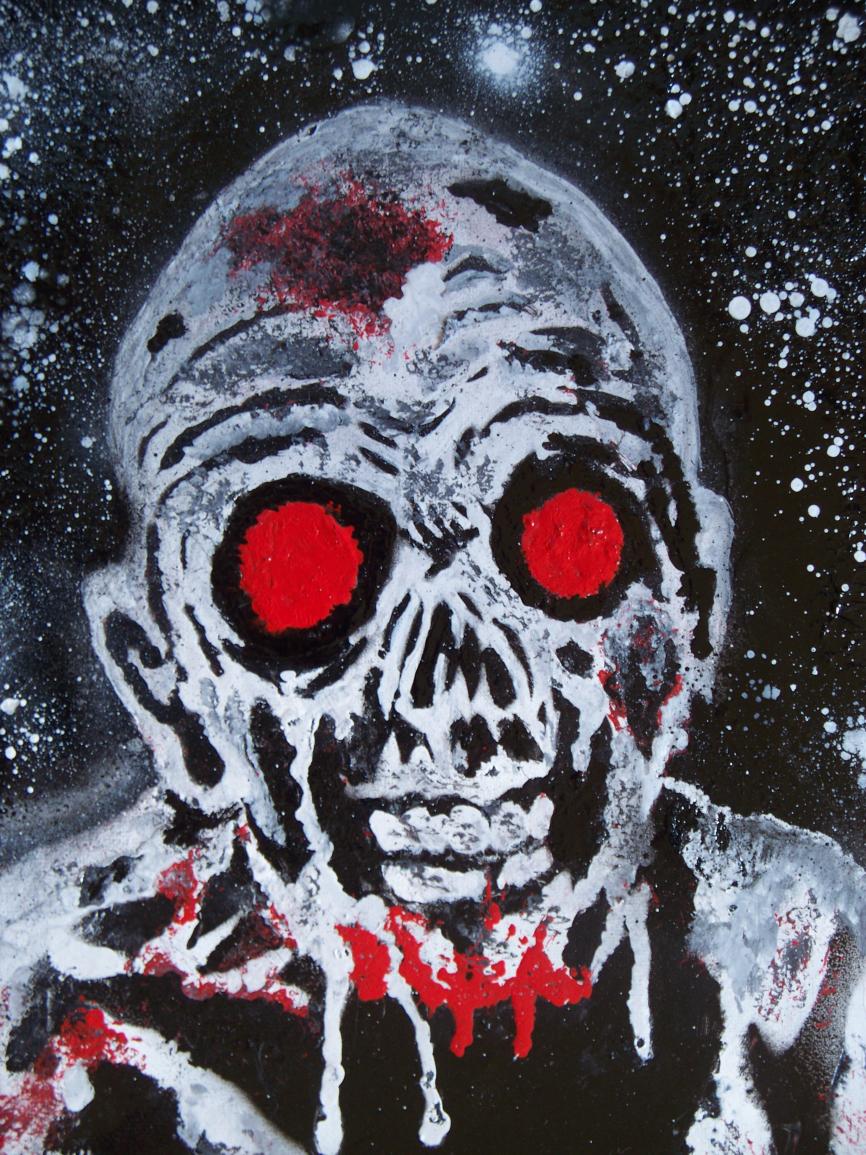Details
- 2012-09-30
- 8
- 73
- 2012
- Painting
- Aerosol Paint
- Horror
Pricing
Price and availability not indicated
Download original file
JPG, 2736 × 3648
- YOG-SOTHOTHERY -
Description by Mister 13
Aerosol spray on canvas. Cosmicism is the literary philosophy developed and used by the American writer H. P. Lovecraft in his weird fiction.Lovecraft was a writer of philosophically intense horror stories that involve occult phenomena like astral possession and alien miscegenation, and the themes of his fiction over time contributed to the development of this philosophy.Perhaps the most prominent theme in cosmicism is the utter insignificance of humanity. Lovecraft believed that \"the human race will disappear. Other races will appear and disappear in turn. The sky will become icy and void, pierced by the feeble light of half-dead stars. Which will also disappear. Everything will disappear. And what human beings do is just as free of sense as the free motion of elementary particles. Good, evil, morality, feelings? Pure \'Victorian fictions\'. Only egotism exists. Cosmicism shares many characteristics with nihilism, though one important difference is that cosmicism tends to emphasize the inconsequentiality of humanity and its doings, rather than summarily rejecting the possible existence of some higher purpose (or purposes). For example, in Lovecraft\'s Cthulhu stories, it is not so much the absence of meaning that causes terror for the protagonists as it is their discovery that they have absolutely no power to effect any change in the vast, indifferent, and ultimately incomprehensible universe that surrounds them. Whatever meaning or purpose may or may not be invested in the actions of the cosmic beings in Lovecraft\'s stories is completely inaccessible to the human characters, in the way an amoeba (for example) is completely unequipped to grasp the concepts that drive human behavior. Lovecraft\'s cosmicism was a result of his complete disdain for all things religious, his feeling of humanity\'s existential helplessness in the face of what he called the \"infinite spaces\" opened up by scientific thought, and his belief that humanity was fundamentally at the mercy of the vastness and emptiness of the cosmos. In his fictional works, these ideas are often explored humorously (\"Herbert West–Reanimator,\" 1922), through fantastic dreamlike narratives (\"The Dream Quest of Unknown Kadath,\" 1927), or through his well-known \"Cthulhu Mythos\" (\"The Call of Cthulhu,\" 1928, and others). Common themes related to cosmicism in Lovecraft\'s fiction are the insignificance of humanity in the universe and the search for knowledge ending in disaster. Lovecraft frequently dealt with the idea of civilization struggling against dark, primitive barbarism. In some stories this struggle is at an individual level; many of his protagonists are cultured, highly-educated men who are gradually corrupted by some obscure and feared influence. “I have seen the dark universe yawning Where the black planets roll without aim, Where they roll in their horror unheeded, Without knowledge, or lustre, or name.” HP Lovecraft.







